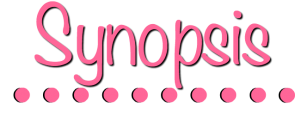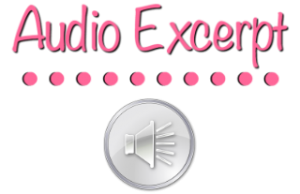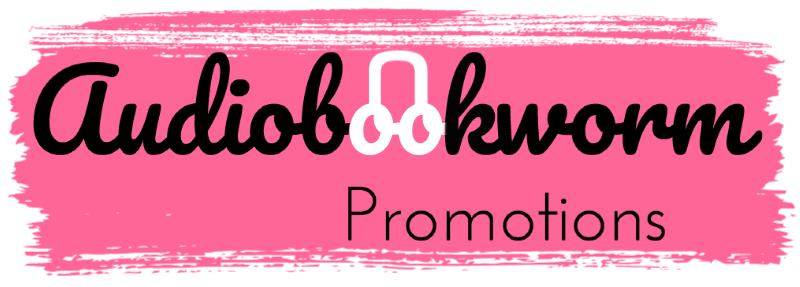Author: Kevin G. Chapman
Narrator: Kevin G. Chapman
Length: 10 hours 10 minutes
Series: Mike Stoneman, Book 2
Publisher: First Legacy Productions
Released: Feb. 14, 2020
Genre: Thriller

“Championing the forgotten turns deadly in this pulse-pounding edge-of-your-seat crime thriller.” Bruce Perrin, author of Killer in the Retroscape. “Unique and twisted. Another home run by Kevin Chapman!” -- Michelle files, author of The Many Lives of Ivy Wells. THE DEAD GIRL THEY FISHED OUT OF THE EAST RIVER WAS A DRUG ADDICTED HOOKER, SO NOBODY CARES. Except that M.E. Michelle McNeill thinks it’s a murder. When NYPD Homicide detectives Mike Stoneman and Jason Dickson start investigating, they encounter unexpected obstacles that point in a disturbing direction. Every death is a tragedy, and every murderer should be exposed, even when nobody wants to hear about it. In order to uncover the truth, Mike and Jason have to go outside the lines, and risk their own reputations, jobs – and lives. This case is one that Mike can’t walk away from, no matter how much he wants to. Harry Bosch fans will love this fast-paced police thriller, from award-winning author Kevin G. Chapman. Book #1 in the Mike Stoneman Thriller series, Righteous Assassin, was named one of the top 20 Mystery/Thrillers of 2019 by the Kindle Book Review. The series continues here.
Buy on Scribd⎮Chirp⎮Nook⎮Google Play
 Kevin G. Chapman is, by profession, an attorney specializing in labor and employment law. He is the most recent past Chair of the Labor & Employment Law Network of the Association of Corporate Counsel, leading a group of 6800 in-house employment lawyers. Kevin is a frequent speaker at Continuing Legal Education seminars and enjoys teaching management training courses.
Kevin’s passion (aside from playing tournament poker) is writing fiction. Kevin’s first Novel: "Identity Crisis: A Rick LaBlonde, P.I. Mystery," was self-published through Xlibris in 2003, and is now available via Amazon.com as a Kindle e-book. His second novel, A Legacy of One, published in 2016 and was a finalist (short list) for the Chanticleer Book Reviews' Somerset Award for Literary Fiction. A Legacy of One is a serious book, filled with political and social commentary and a plot involving personal identity, self-determination, and the struggle to make the right life decisions. Kevin’s next novel, Righteous Assassin (A Mike Stoneman Thriller), was a much more "fun" read -- it's a page-turner. It has some serious sub-themes, but it's a serial killer chase and it's intended to be enjoyable and easy to read. It was named one of the top 20 Mystery/Thrillers of 2019 by the Kindle Book Review! Kevin has just recently finished book #2 in the Mike Stoneman Thriller series, Deadly Enterprise, which was published on December 2, 2019. He has recently completed the narration of books 1 and 2 in the Mike Stoneman Thriller series for audiobook release in 2020.
Kevin has also written several short stories, including "Fool Me Twice," the winner of the New Jersey Corporate Counsel Association's 2010 Legal Fiction Writing Competition, which was the genesis of the character Mike Stoneman, the protagonist in Righteous Assassin. He has also written one complete screenplay (unproduced so far) and has another screenplay and two more novels currently in the works, one of which is a sci-fi space opera epic.
Kevin is a resident of West Windsor, New Jersey and is a a graduate of Columbia College (‘83), where he was a classmate of Barack Obama, and Boston University School of Law (magna cum laude ’86). Readers can contact Kevin via his website at www.KevinGChapman.com.
Kevin G. Chapman is, by profession, an attorney specializing in labor and employment law. He is the most recent past Chair of the Labor & Employment Law Network of the Association of Corporate Counsel, leading a group of 6800 in-house employment lawyers. Kevin is a frequent speaker at Continuing Legal Education seminars and enjoys teaching management training courses.
Kevin’s passion (aside from playing tournament poker) is writing fiction. Kevin’s first Novel: "Identity Crisis: A Rick LaBlonde, P.I. Mystery," was self-published through Xlibris in 2003, and is now available via Amazon.com as a Kindle e-book. His second novel, A Legacy of One, published in 2016 and was a finalist (short list) for the Chanticleer Book Reviews' Somerset Award for Literary Fiction. A Legacy of One is a serious book, filled with political and social commentary and a plot involving personal identity, self-determination, and the struggle to make the right life decisions. Kevin’s next novel, Righteous Assassin (A Mike Stoneman Thriller), was a much more "fun" read -- it's a page-turner. It has some serious sub-themes, but it's a serial killer chase and it's intended to be enjoyable and easy to read. It was named one of the top 20 Mystery/Thrillers of 2019 by the Kindle Book Review! Kevin has just recently finished book #2 in the Mike Stoneman Thriller series, Deadly Enterprise, which was published on December 2, 2019. He has recently completed the narration of books 1 and 2 in the Mike Stoneman Thriller series for audiobook release in 2020.
Kevin has also written several short stories, including "Fool Me Twice," the winner of the New Jersey Corporate Counsel Association's 2010 Legal Fiction Writing Competition, which was the genesis of the character Mike Stoneman, the protagonist in Righteous Assassin. He has also written one complete screenplay (unproduced so far) and has another screenplay and two more novels currently in the works, one of which is a sci-fi space opera epic.
Kevin is a resident of West Windsor, New Jersey and is a a graduate of Columbia College (‘83), where he was a classmate of Barack Obama, and Boston University School of Law (magna cum laude ’86). Readers can contact Kevin via his website at www.KevinGChapman.com.
Website⎮Facebook⎮Goodreads
1.
Tell us about the process of turning your book
into an audiobook.
I was not ready (or willing) to sink several
thousand dollars into the audiobook production process to hire a narrator, book
studio time, and hire an engineer/editor. So, I undertook to research the
process for self-narrating the book and self-producing the audio files. I purchased a home studio kit and committed
to a two-month process of finding the time to narrate both Deadly Enterprise
and book #1 in the series, Righteous Assassin as audiobooks. It took me
two solid months, narrating and editing just about every day, to finish the
project.
2.
Was a possible audiobook recording something you
were conscious of while writing?
No.
But it certainly is something I am now thinking about as I’m writing
book #3 in the series, Lethal Voyage. I noticed while narrating the first
two books that I have a tendency to write long sentences with multiple
dependent clauses. That works on paper, but it’s hard to narrate a long
sentence without pausing to take a breath!
I’m going to be concentrating on keeping my sentences short enough for
single breaths. I’m also more conscious now about whether the voices of
multiple characters in a scene will be confusing and writing text that clearly
identifies each speaker in case there is any confusion.
3.
Were there any real-life inspirations behind
your writing?
There is a lot of my real life in the
settings for the stories (mainly the West Side of Manhattan, where I spent a
lot of time earlier in my life). I really try to get the New York scenes
“right” and to capture the feel and pace of the City in the books. There is also a bit of my personal experience
in some of the characters, whose personalities and in some cases backgrounds
mirror people I know. In Deadly Enterprise, I drew heavily on my own
family experience dealing with someone (in my case, a younger brother) who has
struggled with meth addiction. That’s not easy to understand or
appreciate if you have not dealt with it, and I hope I got that part right in
this book.
4.
How do you manage to avoid burn-out? What do you
do to maintain your enthusiasm for writing?
I spend a lot of time brainstorming with my
wife about story ideas and character development issues. That helps keep
things fresh for me. For now, in my
life, I still have a full-time job, so my writing is my distraction. I’m
sure that if I were writing full-time, there would be more burn-out issues.
5.
Are you an audiobook listener? What about the
audiobook format appeals to you?
I listen to audiobooks on CDs in my
car. For my job I often have long road trips, so having an audiobook is a
great way to stay alert while driving. I also sometimes drive from my
home in central New Jersey to Atlantic City (about 90 minutes each way), which
is also great time to listen to an audiobook. I have not yet started
downloading books onto my phone and blue-toothing that to my car’s audio
system, because I get my audiobooks on CD from my wife’s father, who buys them
in that format and then lends them to me when he’s done. I like listening
to different narrators and thinking about how best to narrate my own
books. Sometimes the listening
experience has drawbacks as opposed to reading a hard copy or Kindle book, but
it’s a very nice way to read a book I might not otherwise pick up.
6.
Is there a particular part of this story that
you feel is more resonating in the audiobook performance than in the book
format?
There is a scene in Deadly Enterprise
(Chapter 23), that I call “the scotch scene.” It’s a heart-to-heart
conversation between the two main male characters and it explains a bunch of
backstory issues. I love the scene, and I think it plays particularly
well in the audiobook format, where I get to really voice the emotions
involved, and take the scene slowly. When reading on paper, a reader
might tend to fly through it too quickly.
The scotch scene audio is available for free on my website for anyone
who wants to give it a listen – but know that there is a bit of a spoiler about
the plot since it’s chapter 23 and some things have happened that trigger the
important discussion.
7.
If this title were being made into a TV series
or movie, who would you cast to play the primary roles?
Like most authors, I give this question way
too much thought. Right now, I don’t think there’s any doubt that Michael
B. Jordon would play Jason Dickson. Not just because he’s a hot actor,
but because he’s perfect in physical features, voice, and attitude to be Jason
Dickson. Mike Stoneman is harder.
He’s pushing 50 and he’s 5-10 and a little paunchy and not a “hero”
leading man type. Twenty years ago, it
could have been Charles Durning. These days, maybe Russell Crowe
(although he’s not American so I would worry about the New York accent). I don’t think Brad Pitt is old enough, but makeup
can do wonders . . . .
8.
What do you say to those who view listening to
audiobooks as “cheating” or as inferior to “real reading”?
That’s nonsense. I recall a story
from years ago where a high school teacher gave some of his student’s bad grades
for an English assignment in which they were reading Shakespeare because the
students had gone to see a live production of the play they were reading.
The teacher said that they had not completed the assignment properly because
they had not read the play on paper.
What? It was written to be a
production, not to be read by the audience on paper. Well, it’s true that most books are written
with the expectation that they will be read on paper (or an e-reader), but the
point is still to get the words to the reader. So many people have time issues
and sitting quietly to read a book is hard.
If the audiobook allows someone to experience the story, then that’s
great. I’m betting that some people
absorb and remember the story better listening to it than reading it – and
sometimes with fewer distractions.
9.
Have any of your characters ever appeared in
your dreams?
All the time. In fact, some of my best
story ideas have started out as dreams. I have a pad of paper and a pen next to
my bed so that I can write down interesting dream-stories right after I wake
up. My subconscious mind apparently likes to produce movies for me.
10.
What's your favorite sports team, and does that
find a way into your books?
Yes! I’m a huge New York Mets
fan. Mike Stoneman is also. There
are always some Mets references in the books. This is partly a “product
placement” issue (to get Mets players to read me) and because a very good
friend of mine writes a Mets fan blog (faithandfearinflushing.com) where he
keeps a running list each year of instances where Mets appear in pop culture
and fiction. I try to make his list every year by including appropriate
Mets references in my books. There’s a
nice scene in Deadly Enterprise where Mike meets Mets starting pitcher Noah
Syndergaard (you’ll have to read the book to see.
11.
Do you have any tips for authors going through
the process of turning their books into audiobooks?
Yes! I have lots of advice and tips that
I’m putting into a blog post/article that you can look for in the coming
months. I’ll advertise its appearance on my website and in the Mike Stoneman
Thriller Facebook group.
Chapman did an
awesome job an capturing my attention right from the beginning and pulling me
in. He made me feel like I was apart of the team/squad by giving us a feel for the
life of a policeman. I extremely enjoyed that he narrated his own work. I’ve
listened to other author’s who’ve narrated their own work and I haven’t found
to many that I’ve really enjoyed. Chapman did an excellent job!
I received this audiobook as part of my participation in a blog tour with Audiobookworm Promotions. The tour is being sponsored by Kevin G. Chapman. The gifting of this audiobook did not affect my opinion of it.

My Self-Narrating Journey
By Author Kevin G. Chapman
As an independent author trying to talk up the first two books in my crime-thriller series to potential buyers, I frequently heard the same question: “Is it available as an audiobook?” (OK, mostly it was, “Is it available on Audible,” but I’m trying to be more inclusive here.) I would have to sigh and say, “No, not yet.” This was my hopeful way of telling myself that it could happen someday. Among the hundreds of marketing advice columns I have read over the past three years, a consistent theme is that getting into the audiobook market is a good idea. There are fewer titles available (relatively speaking), giving your book a chance to stand out more.
But, without a traditional publisher to front the costs and make the arrangements for a professional narrator and a professional studio, is that investment (and it’s going to be around $4000) worth it when it comes out of your own pocket? Lord knows I’ve seen it work. My father-in-law is an avid listener to books on CD, and he routinely spends $25-30 per title. I take his audiobooks when he’s done for listening in my car. Some are pretty good. Many are just awful – and yet they are “best sellers,” even when the narrator is not particularly good – and even when the story is lousy. So – it’s a good idea to have an audiobook, but is the Return On Investment going to be there?
Well, I was not quite ready to sink that much cost into the process on the speculative idea that I would then be able to sell thousands of audiobook copies. The next option was to consider self-producing the audiobook, just as I had self-published the paperback and ebook versions. (Of course, I had help from a professional cover designer and a professional editor during that process.) ACX (Audible’s production arm) tries to make it relatively easy, and there are on-line tutorials about how to narrate and edit your own audiobook. So, I asked my wonderful wife, Sharon, to buy me a home studio kit for the holidays (under $250) and in December I set up a studio in my basement (following the advice from all the blogs and You-tube video tutorials) to start narrating my own books.
Fortunately, I have a basement at home that is pretty quiet (as long as nobody is walking across the floor directly above my work table). I set up the studio, although I did not initially put up sound barriers, which was mistake #1. By the time I was recording book #2, I had blankets hanging from the ceiling all around the recording area to dull any echoes. I fired up the software, plugged in the microphone, did some sound checks, and then launched into Righteous Assassin. As I went along, I discovered that there are aspects to the process that you don’t think about, can’t really prepare well for, and just have to learn by trial and error. Oh, there were so many errors.
The biggest error was that I did not realize that the audio software interface that connected my microphone to my laptop computer had an input setting. I was happily narrating my book into the professional-grade microphone, listening to myself speak through my high-quality over-the-ear headphones (that came with the recording kit), and it sounded great. Then, somehow, the final audio files had a lot of echo. Why? The answer was that the software (Audacity) has a setting for the microphone interface, which should have been set to match the mic and the amp/processor (Focusrite). But, the software interface was set to “Microsoft sound Card” (or something like that). When I switched the interface input to Focusrite, the sound quality improved dramatically. Why? Because now the Audacity software was getting my voice through the professional microphone! What was happening before? The software was receiving my voice through the microphone built into the laptop. Yes, the same one that picks up your voice if you’re doing a video chat without a headphone. The crappy mic with the echo and the low fidelity. Arrrggh! I had recorded the whole book essentially without using my professional microphone – as if I had done the whole thing just reading into the laptop’s built-in mic. (What an idiot, right?)
So, now what to do? Could I scrap the whole finished audiobook and start over? No. I did not. I recorded book #2 (using the correct interface setting), edited and mastered it, and got both books up for sale. My listeners will have to just live with the lower quality audio for book #1. It’s the same book – same words, same voices – just not quite at a professional audiobook production quality. To my listeners, I apologize and hope that you can overlook that small issue and still enjoy Righteous Assassin. In any case, anyone who listens to Deadly Enterprise will appreciate how much better the audio quality is.
Were there other mistakes? Sure. too many to list here. Look for another blog post from me on this subject, and if you need any tips on how to avoid the mistakes I made in my self-narrating journey, feel free to drop me a line via my website at www.KevinGChapman.com.
When I took down the blankets I had hung from the ceiling around my poker table to serve as noise-absorption barriers, coiled up my microphone cords, dismantled my boom stand, and put away all the equipment that I had been living with daily for the past two months, I had a real sense of accomplishment. I was also fearful that all the effort had been (maybe) wasted since I had no idea whether anyone outside my friends & family circle would buy the audiobook. But, I also knew that, someday, my great grandchildren would be able to listen to me read my books to them. That’s a nice thought. Sure, they can also read the books, but having the personal connection of my voice reading my stories to future generations is something that I now realize has great value to me, whether the audiobooks sell or not.
I’m glad I did it. I made a ton of mistakes. Hopefully the narration of book #3 will go much more smoothly. Now, it’s up to my readers and reviewers to judge how well I did on my first attempt.

CLICK HERE TO VIEW THE FULL TOUR SCHEDULE!
Plugging you into the audio community since 2016.









Thanks for hosting the book tour and thanks for the review. Very much appreciated. -- Kevin G. Chapman
ReplyDeleteDeadly Enterprise is now available on Audible (it was a long battle with the ACX QC folks, for some reason). So, if you are inclined to post the review on Audible, I would appreciate it. Thanks. Kevin G. Chapman
ReplyDelete